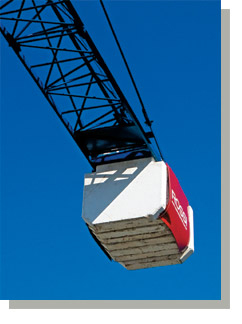
Strategy The year of 2007 was notable for the consolidation of the growth process that began when the company went public ten years previously. With the funds obtained through the issue of shares on the BOVESPA, it was possible to proceed with expansion plans, hiring more employees and opening regional offices. Rossi’s preparation for this great leap forward included the adoption of computerized management procedures through the use of a SAP management system. As a result, Rossi grew approximately six times in size since 2005 — in a planned manner that was coherent with the behavior of the Brazilian real estate market. In 2007, the strategy for launches and land acquisition was based on diversification, both in terms of products as well as regionalization. Rossi developed projects for different income classes and put into place a strategy for exploiting the strong growth of the economy housing segment, a sector in which it has vast experience. By 2020, Brazil needs to build 27.7 million housing units to satisfy the growth of families, eliminate the housing deficit and do away with shantytowns and slums. This estimate comes from a study by FGV Projetos, prepared in partnership with the São Paulo States Civil Construction Industry Syndicate (Sinduscon), which also reports that about 70% to 75% of these units are for families that earn up to 10 minimum wages per month. The company has extensive know-how in this segment, having already created new concepts, such as the Plano 100 and Villa Flora. In 2009, the economy housing segment is expected to represent for Rossi some 40% of the amount of its launches. For this to happen, three product lines were developed: the Villa Flora, the Residential Plazas and the Verticals. They are large-scale repetitive products, in partnership, developed throughout the chain of supply to rationalize costs and to guarantee the delivery of the volumes involved. The first projects launched were very successful, encouraging Rossi to move forward with the certainty of having a winning strategy. Rossi is a company that originated in São Paulo ?, which now seeks fast nationwide expansion. By opening up regional offices and signing partnerships in a number of different cities around the country, the company is multiplying business opportunities. Brazil today has a number of centers undergoing development in different states. Satisfying these markets that are avid for quality real estate projects at competitive prices means the realization of a strategy that compensates momentary slowdowns in the main cities, where competition is increasingly tougher. |
|||











